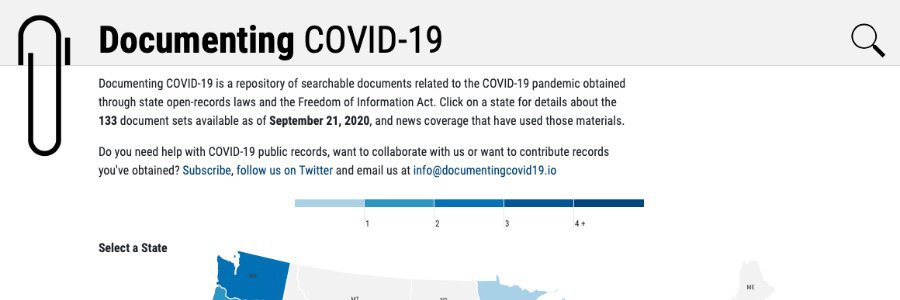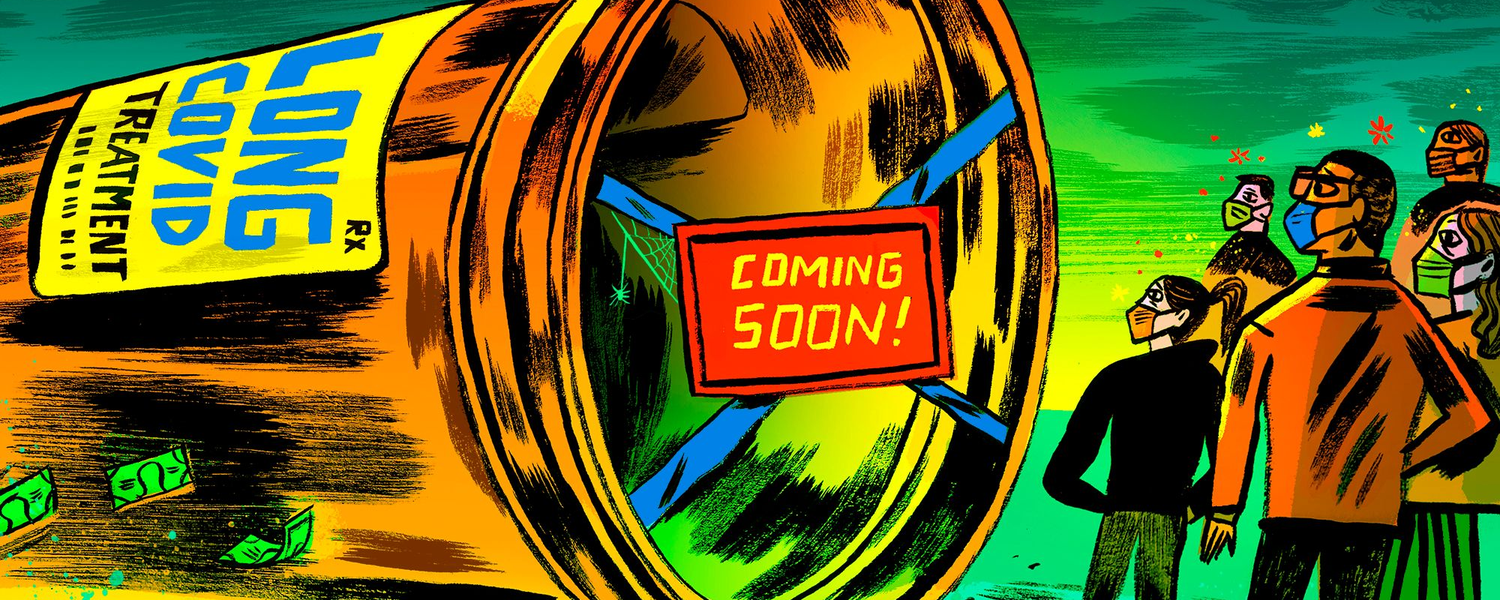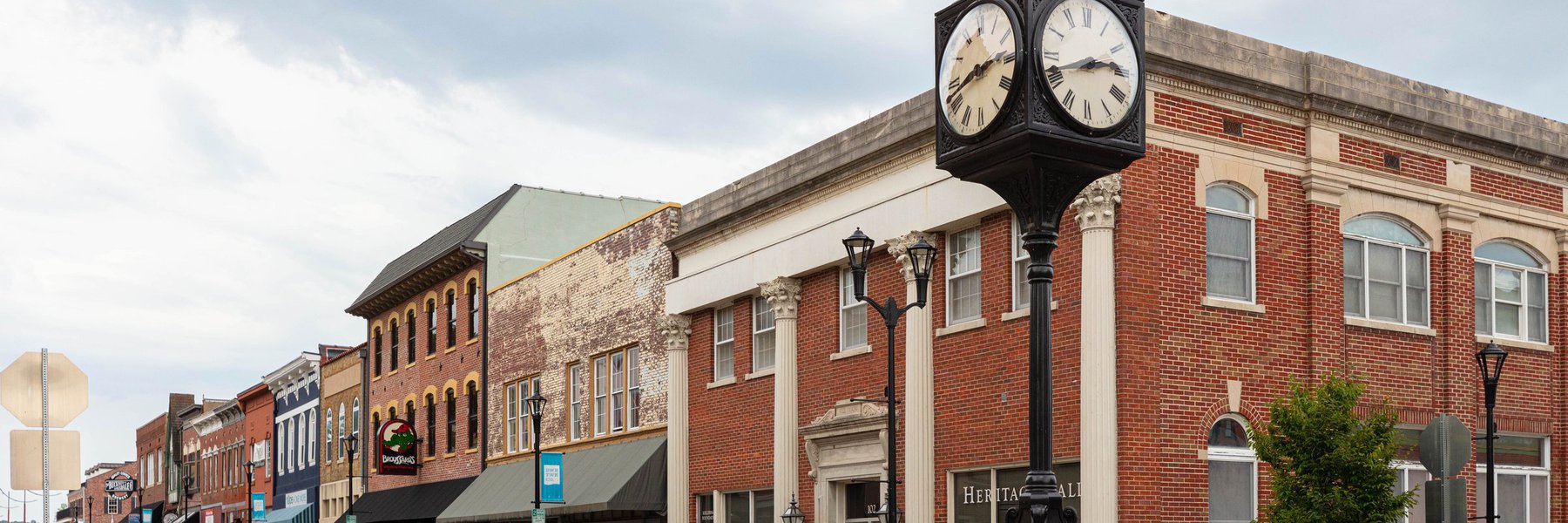Building on our COVID Public Info partnership, we’re excited to announce that we’re combining efforts with Documenting COVID-19. The project, based out of Columbia University’s Brown Institute for Media Innovation, is similarly working to use public records to build a shared repository to advance understanding of the impact of the pandemic.
Partnering will help us better serve newsrooms around the country while gathering a more comprehensive collection of records requests, databases, and other primary source materials.
Today, Documenting COVID-19 has launched two pages that highlight the work done so far and make it more easily accessible: The Examiners Project, which aims to compile detailed records on COVID-19 deaths from local medical examiners and coroners across the U.S., and The Algorithms Project, which aims to obtain information about state and federal agencies’ use of algorithms and other predictive tools amidst the COVID-19 pandemic. There’s more about each project below.
We’re also want to use the increased resources to help more newsrooms report in new ways on the epidemic. If you’re interested in collaborating email info@documentingcovid19.io.
We’re grateful for the critical support of COVID Public Info provided by the John S. Knight Journalism Fellowships at Stanford University. Without it, we would not have been able to ramp this project up and file hundreds of requests on key issues facing communities around the country. Covid Public Info was started and managed by Outlier Media, the MuckRock Foundation, Matt Kiefer, and Garance Burke
The Examiners Project
The Examiners Project aims to compile detailed records on COVID-19 deaths from local medical examiners and coroners across the U.S. The records are maintained separately from health authorities and often include case details that local governments do not make public, including the names; race and ethnicities; addresses and ZIP codes; and other important data points about those who have died. This data can be used to fact-check reported deaths due to COVID-19 and identify gaps in existing fatality data relating to the pandemic.
The Examiners Project, started by former JSK Fellow Matt Kiefer and now led by Chicago-based investigative journalist Kyra Senese, began with support from the John S. Knight Journalism Fellowships at Stanford University as part of the Covid Public Info project. It included contributions from team members, including JSK Fellow Garance Burke, as well as MuckRock and Outlier Media, and partner newsrooms around the country, including KQED.
Documenting COVID-19 has obtained public records from health departments and other local authorities in counties throughout the U.S. in recent months to gain insight into the COVID-19 pandemic, resulting in a repository of searchable documents related to the response to the virus. The project is now collaborating with Kiefer’s team to continue progress on the medical examiner project.
The Algorithms Project
The Algorithms Project, started by former Stanford JSK-HAI Fellow Garance Burke and now led by New York-based investigative journalist Georgia Gee, began with support from the John S. Knight Journalism Fellowships at Stanford University as part of the Covid Public Info project. It included contributions from MuckRock’s Beryl Lipton and input from team members, MuckRock and Outlier Media.
The project aims to obtain information from state and federal agencies around the use of algorithms and other predictive tools amidst the COVID-19 pandemic. Specifically, the project looks into the function of algorithms in policy decisions regarding unemployment; release from state and federal prisons and jails; and surveillance, such as thermal cameras and facial recognition. These records are maintained by federal and state governments but typically are not made public without an open records request.
Documenting COVID-19 continues to look into the use of algorithms amid the pandemic, exploring the extent of bias in AI medical technologies. The project aims to investigate whether predictive tools related to COVID-19 have had an impact on marginalized communities, such as data-driven decisions on testing locations.
Do you want to collaborate with us or contribute records you’ve obtained? Subscribe, follow us on Twitter and email us at info@documentingcovid19.io. You can also learn more about us here.




